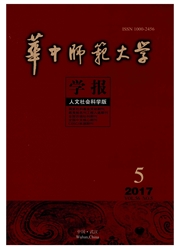

 中文摘要:
中文摘要:
中国心灵哲学在对人与世界作整体把握时,除了有超心物二分图式的特点之外,还有这样一个特点,即在将心理王国作为统一对象把握时,尽管在一些语境下表面上承认心为主宰,但一般坚持认为,心理王国的主宰不像西方哲学所说的那样只有一个,而有"多主角"或多主体,如心、魂、魄、神、我或自我等。它们都有自己的形成过程、构成、结构、运作方式、特点和特殊本质,在人的心理生活中,都有自己的势力范围、功能和职责。各司其职,但又通过特殊的方式,相互协调,共同构成完整的、整体的人。在论述它们的关系时,存在着独立论、归并论、主中有主论、一实多名论的分歧与争论。中国心灵哲学中同样存在着"李约瑟难题",落后于西方是近代以后的事情。其领先主要表现在它的价值性心灵哲学中,当然它的求真性心灵哲学中也有一部分具有现代意义,值得发扬光大,如心理多主论中就包含有超二元论思想、非实体主义、非中心主义、特种形式的具身性思想等。
 英文摘要:
英文摘要:
Chinese philosophy of mind demonstrates a distinctive feature in its grasp of human and the world as a whole besides its schemata beyond mind-body dichotomy:there are the"multi-masters"or multi-subjects in the realm of the mind where it is regarded holistically,such as the heart,the soul,the spirit,god,I and self,each performing its own functions within its own range.In discussing their relations,there are disputes from the independent theory,merging theory,the theory of"the master of masters",and the theory of one-entitymulti-names.In Chinese philosophy of mind,there is also the "Needham Problem",China being left behind by the west after modern times.
 同期刊论文项目
同期刊论文项目
 同项目期刊论文
同项目期刊论文
 期刊信息
期刊信息
